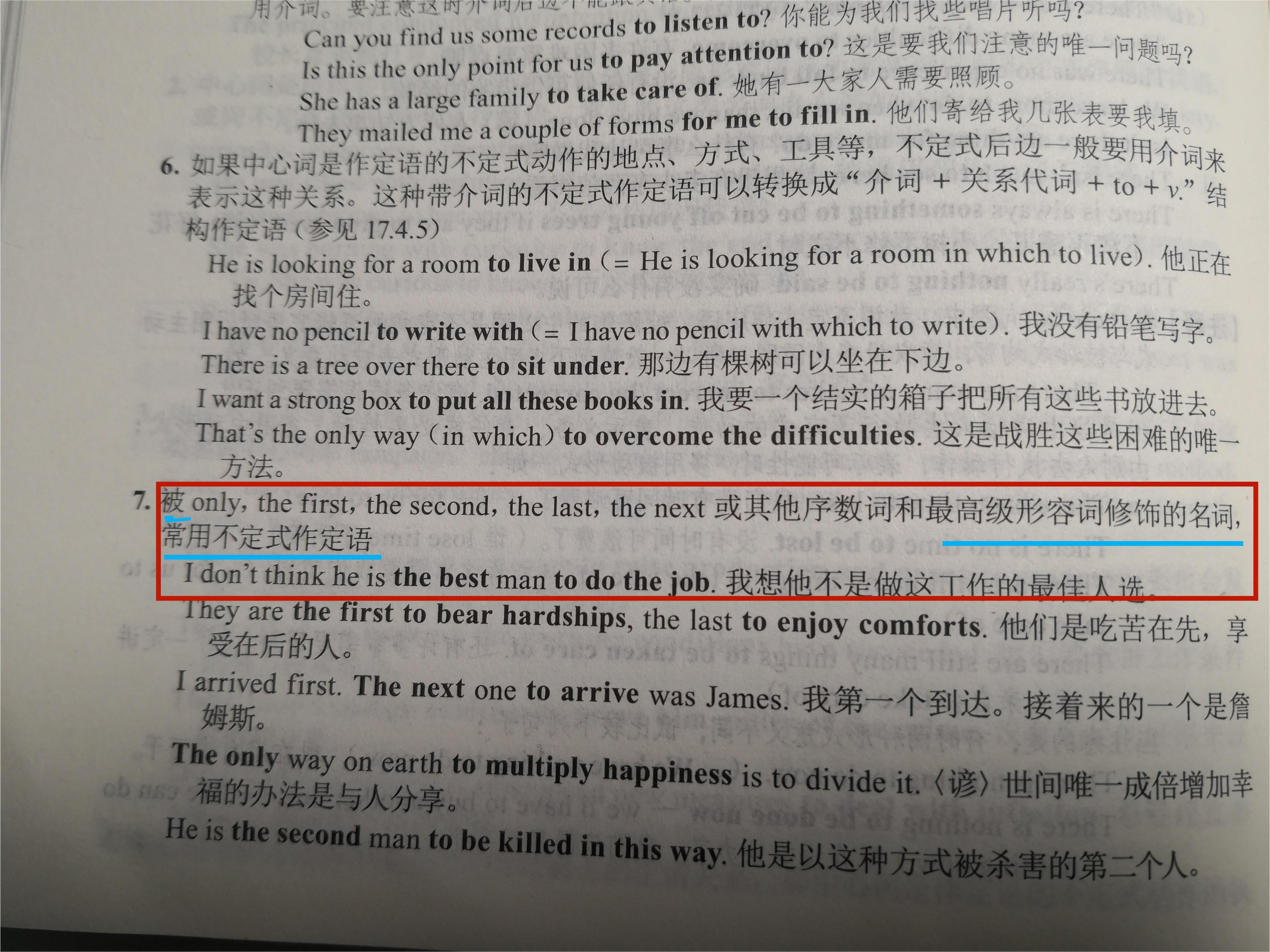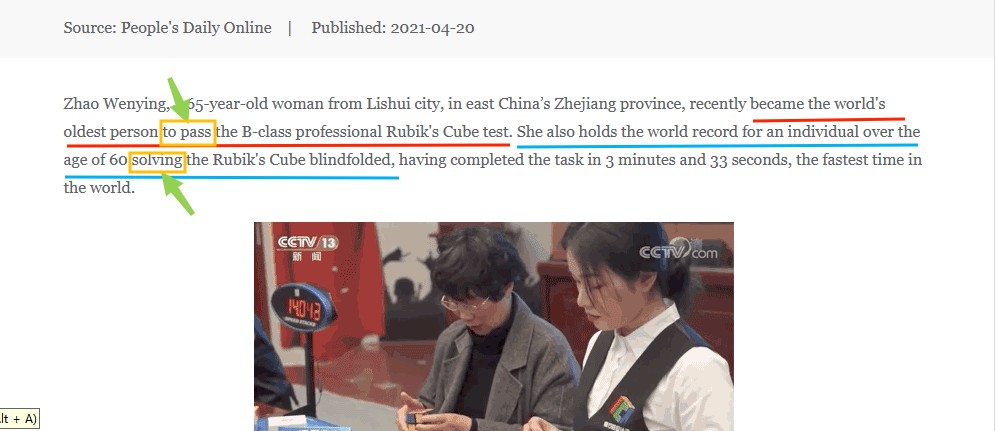非谓语动词 到底用to do,还是doing
Zhao Wenying, a 65-yearold woman from Zhejiang Province, recently became the world's oldest person "to pass" the professional Rubik's Cube(魔方) B-level exam. She also holds the world record for a person over the age of 60 to solve the Rubik's Cube blindfolded.
这里意思不就是通过这个考试了吗?
the world's oldest person 后面为什么用 'to pass' the professional Rubik's Cube(魔方) B-level exam?to do 不是表示还没有做吗?
为啥用 to pass?为啥不用passing?
最佳答案 2024-04-22 20:38
当名词被形容词最高级修饰或被序数词限定时,一般后接不定式作后置修饰语,此时的名词一般与不定式构成主谓关系,不定式动作的发生时间可以先于谓语动词动作的发生时间。所以,这里的不定式动作是先于became完成的。即:先通过后成为。
Swan有类似说明:
He's the oldest athlete ever to win an Olympic gold medal.(= ... who has ever won …)
所以,… became the world's oldest person "to pass" the professional Rubik's Cube B-level exam.
类似于:… became the world's oldest person who had passed the professional Rubik's Cube B-level exam.
仅供参考。
- 1 关注
- 1 收藏,1061 浏览
- 蓝天 提出于 2024-01-08 10:23
相似问题
-
 《高考英语备考1号·速效编》
《高考英语备考1号·速效编》
-
 《高考英语备考1号·写作编》
《高考英语备考1号·写作编》
-
 《高中英语晨读晚记》
《高中英语晨读晚记》
-
 《高中英语错题笔记》
《高中英语错题笔记》
-
 《零起点考大学英语》
《零起点考大学英语》
-


